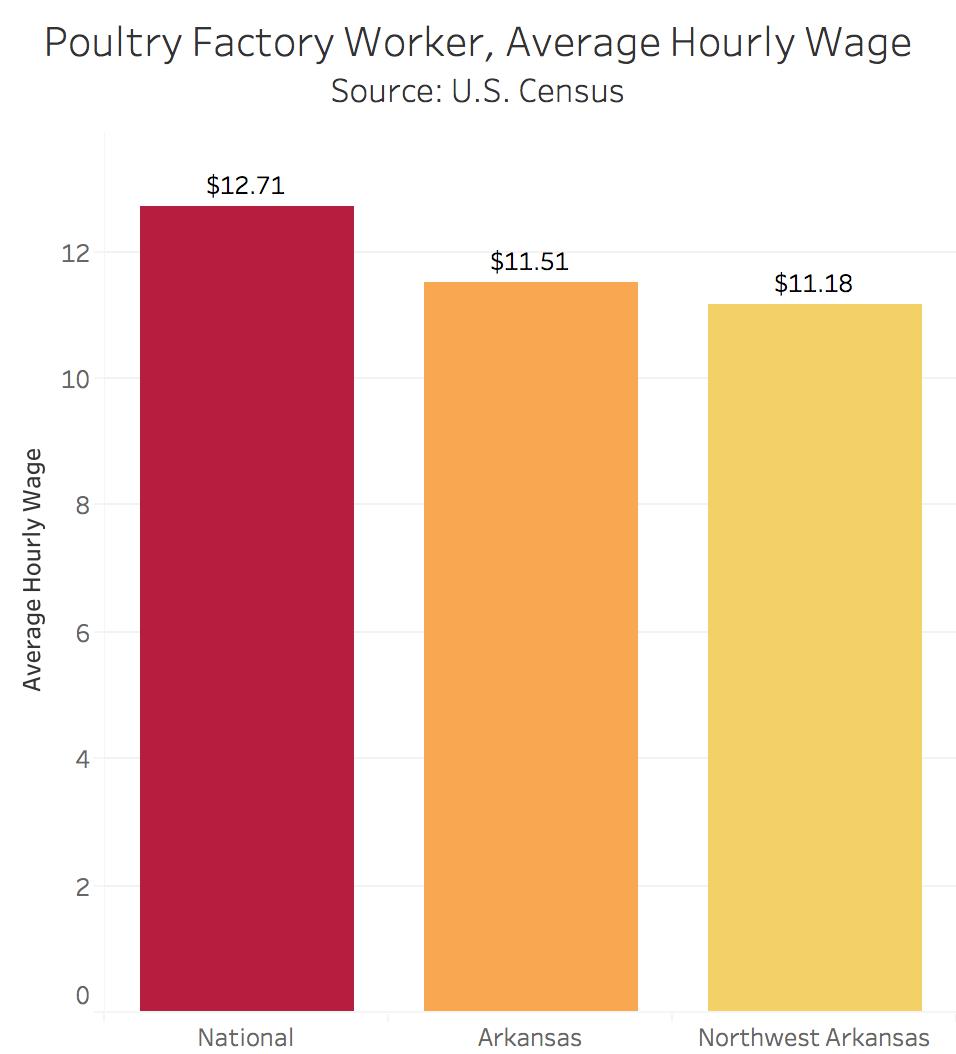

The Springdale resident damaged a tendon in her left thumb cutting chicken, and the doctors took the tendon in her left ring finger out to fix her thumb. Now, her left ring finger is having problems, she said. This injury took Lara out of the workforce for eight months.
Financial struggles from on-the-job injuries
Tyson declined to comment Lara’s situation. However, a Tyson spokesman directed a reporter to a 2016 statement that its Chief Executive Officer, Tom Hayes, plans to hire more poultry plant trainers, expand safety communications programs and continue the participation of hourly workers in safety councils.
Lara arrived in the United States in 1999 and has considered herself to be in poverty since that time. “People have to borrow money to pay for their way here, so when you get here you arrive in debt,” she said. “Then you’re not paid enough, or not given a raise. I have been working their since 1999 and have never received a raise.”
“I’m concerned because I already have a left hand I can’t work with, so if I get surgery and mess up my right hand, I won’t be able to work,” she said. “After my first surgery, they already wanted me to quit on my own, if I have to have another one they’ll find even more ways to pay me less.”
Lara is a member of the Northwest Arkansas Workers Justice Center, run by Magaly Licolli. “Injuries cost money for the corporations. It’s not just one case, it’s a repetition. Once they are fired, they don’t have any benefits and are out of the work force, entering this cycle of poverty,” Licollli said.
Despite their above-minimum wage, Lara said that she has to live paycheck to paycheck, if she is lucky. Both Lara and her husband are still working to support their kids, who they hope will have a better future than themselves.
“Our children have seen all that we have been through and say to themselves, ‘We will make sure we get a good education so you don’t have to worry about us,'” she said.
